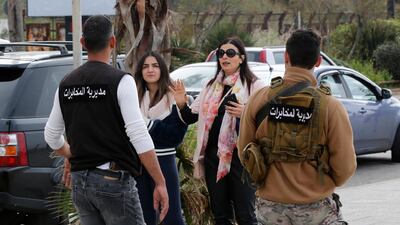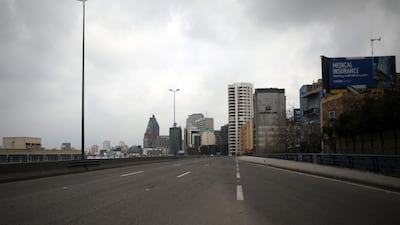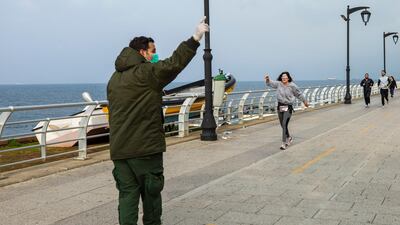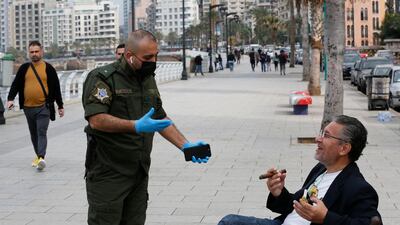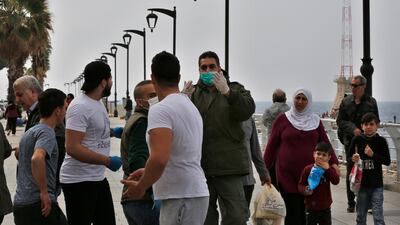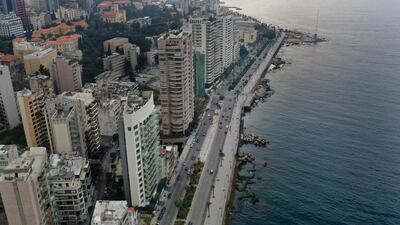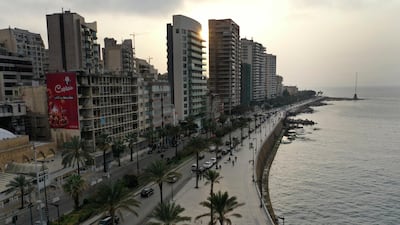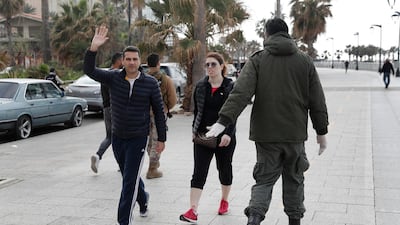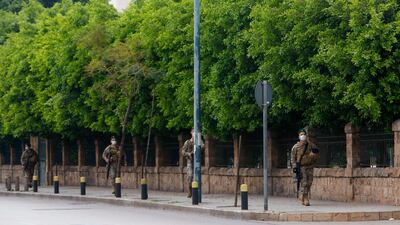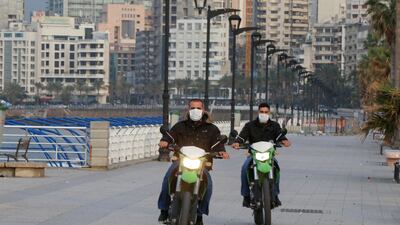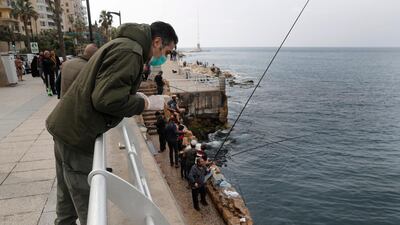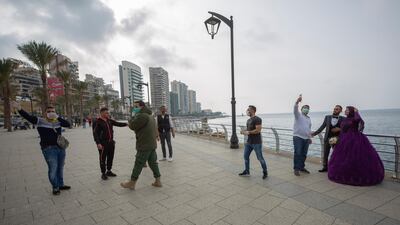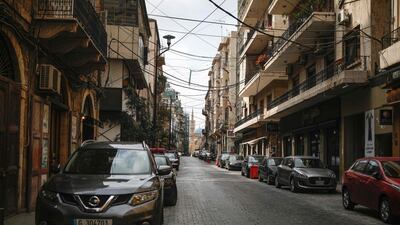Lebanon’s private and public institutions will be shut and non-necessary social movements will be banned for two weeks from March 15 to limit the spread of the coronavirus, the government announced on Sunday evening.
Beirut’s international airport will be closed from next Wednesday until March 29.
Except for situations of “extreme necessity”, citizens may not leave their homes or gather in “public and private places,” Information Minister Manal Abdel Samad said, speaking after a four-hour emergency government meeting.
In a short speech, Prime Minister Hassan Diab said the government was taking “the maximum measures to protect the Lebanese”.
Core public institutions – including the state-run national utility company, banks and security forces – and public and private medical centres will remain open, as will shops selling food. Custom fees and VAT will be lifted for two months on medical equipment imports necessary to treat patients infected with the coronavirus, or Covid-19.
Lebanese citizens, their relatives and diplomats will be allowed to enter Lebanon until Beirut’s international airport shuts on Wednesday only if they carry a health certificate proving they are not infected by the coronavirus, Ms Abdel Samad said.
People arriving from countries and regions that had been previously banned will not be allowed to enter Lebanon at all. They include France, Egypt, Syria, Iraq, Germany, Spain, the UK, Italy, Iran, China, Hong Kong, Macao, Taiwan and South Korea.
Three people have died of the coronavirus in the small Mediterranean country of roughly 4 to 5 million people, and at least 100 people are infected. Previous measures taken since late February include the closure of schools, universities and restaurants, and limiting religious celebrations.
In a taste of the confinement measures to come, people walking on Beirut’s corniche, one of the city’s few public spaces, were told to leave by police on Sunday afternoon.
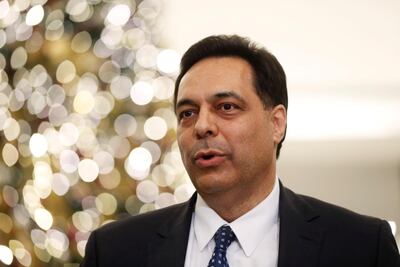
As the sense of urgency mounted, several MPs tweeted that they would donate a portion or the entirety of their salaries to public hospitals treating patients infected with the coronavirus.
On Sunday evening, Health Minister Hamad Hassan launched a national fund to fight coronavirus, donated his March salary to the fund and pledged to be transparent about coming donations.
Shortly before the government meeting on Sunday afternoon, President Michel Aoun said the country was in a state of “medical emergency”. He chaired a meeting of the higher defence council, which recommended that the government issue the decrees necessary for a “general mobilisation”.
In Lebanese law, general mobilisation allows the government to draft in armed forces “to reduce the exposure of the population and vital installations to danger,” reported the state-run National News Agency. The government may take control of energy sources and industrial production, monitor transport and communications, and confiscate private funds.
This would be a first in recent history, said retired general Khalil Helou. "They could draft in retired soldiers as well as army medical staff," he told The National.
“Everything would be centralised under one state authority, like in China,” he said, referring to the centre of the coronavirus in Wuhan, where Maj Gen Chen Wei led efforts to contain its spread. But the decrees must first be voted by the government, and this could take several days, Gen Helou said.
Lastly, the government will be taking steps to control the media narrative regarding the coronavirus, Ms Abdel Samad said.
There will be coordination “with all media outlets” about how to report on the pandemic, in addition to the launch of a government website with information on Covid-19.
“It is important to give the right news about the coronavirus to not create panic,” she said.
